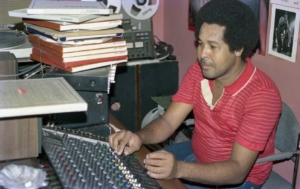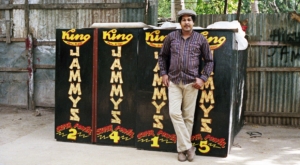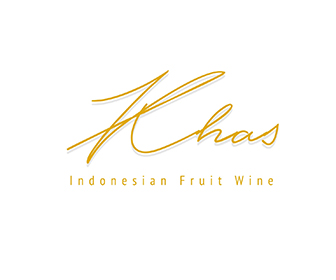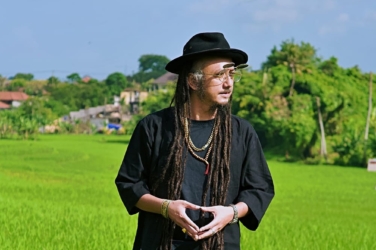We are so proud to bring you this article. On this special celebration, we have an honour to conduct an exclusive interview with the living legend, one who gave birth to many masterpieces in the realm of dub music. Lads, this is the one and only Lloyd James, as we all know as King Jammy!

It is a flashback to your childhood memory. Do you still remember what kind of music that people loved to play at that time? And what was the first music you listened to that time?
Well I used to listen to R&B music because in Jamaica at that time we only had 1 radio station. And they used to play like mento songs and other songs from America like R&B and things so I used to listen to R&B mostly, you know and blues. I used to tune into radio stations in America, WLAC is a national Tennessee and the DJ in there was John R. He used to play some good R&B in those days Curtis Mayfield, Lady King, Sam Cooke and those guys you know. So I was a lover of R&B music
When you grew up, you met King Tubby’s brother Saga. Can you share how you two first met that led you to become an electronic technician? What did Saga teach you?
When I was… when I left Montego Bay, we used to live in the same street as King Tubby’s, Saga was living there too at the same home you know. So I used to go by King Tubbys. I met Saga first before I met King Tubbys and we became friends. Because we’re the same age as grown up kids you know. Tubby is older than us, so we became friends and we started learning. I started learning how to make a crystal set radio (a simple radio receiver) because by then Saga knew already because he was there beside his brother Tubby. So he knew about all those things. So I just… he taught me how to make a crystal set radio and you know I learned it from that so we became close friends and we worked together from there.
That was the moment you began to build your own soundsystem. What really motivates you at that time?
Well, because my mother had hmm.. she bought a little radio. And I used to like to experiment with it. Troubled it and i get to love electronic parts of it. So when I went to Tubbys I learned more from Saga. So that’s what drives me to love electronics you know. So I started doing that.
You decided to go to Canada for a while, what was your highlight about your time in Canada?
Well, I had a soundsystem and when we went there, I went to Canada to spend some time. So when I went there to spend some time, I met up with some friends from my community. So they knew that I used to do, so they took me to a TV repair shop and when I went there I saw the guy appeared with an amplifier. So right away I told that was my specialty. So I said to him I knew what was wrong with the amplifier, they introduced me to him and he said give it a try, so I went to fix the amplifier and employed me you know. He got me a job, so I used to work with it.

Would you please tell us what kind of musical relationship you have with King Tubby and Bunny Striker Lee?
Bunny Striker Lee, I knew King Tubby before Bunny Striker Lee because I grew up with Tubbys right? So he was like family, we were like family. But Bunny striker Lee you know, I got to know striker lee about 1967. And we young used to go, that time I had my sound in Jamaica so I used to go to striker lee record shop and he gave pre-release records of them a sound so I knew him before king tubbys knew him. So I took him to king tubbys you know and they started to work together. When I went to Canada he came to Canada afterward and he said to me like I must come back home to Jamaica because Tubbys don’t have an engineer to work in the studio and they need me. So I came back home and I started to work at King Tubbys studio. So that where the link came between us, striker lee him producing works because i did. I was his engineer I did all of his songs in those as of King Tubbys, so we were… he was the person who taught me how to produce songs, striker lee he brought me to production. He gave me riddim and showed me how to do it and things.
From the early days, “Waterhouse” always threw some milestones. For example, The Supergroup like The Rolling Stones did a “Too Rude,” a reworked from one of Half Pint’s track; “Winsome”. And not to forget, “Born Free” and “Natural Mystic” for Black Uhuru. Seems like that you have the touch of midas in music. Can you tell us what was the secret creativity flows of music from King Jammy?
King Jammys try to think differently, if you notice? I do my production differently from the rest of the producers. I don’t do the same kind of beat that they do. I let my things sound different, you know. I’m a special mixer engineer. My sound is identifiable, you know. The Jammy’s sound is plain to hear when you play music you can tell is that Jammy’s sound you know. So I like to experiment also to do new things in music. Most people don’t like to do that, most people like to build on other people’s arms but I like to experiment to find new things so that’s my speciality.
Black Uhuru was among the first artists you produced and You once said in an interview they are very unique and different from other artists. What is a special thing about them? Was it the “waterhouse” style singing? Do you have any idea who invented that style?
Well, Mykal Rose was responsible for the style Black Uhuru had you know, because he was singing like an Arabian chanting in the desert you know. So he style was different from the rest of Jamaican style because they were all ordinary singers but Mykal Rose had a chant like Arabian in the desert you know. That’s why his style was different from the rest of them. and because hmm..he has a unique group and because we grew up together out there at the same corner that is why we started recording them you know, before anybody else.
Your energy for music is something remarkable that lots of people can enjoy up to this day. Giving birth to lots of masterpieces from many works you did with other musicians. One of them is “Sleng Teng”. What can you remember about the story behind that legendary riddim you did with Wayne Smith & Noel Davey and Casio MT-40?
Well I can’t forget that because that’s the biggest riddim you know, that’s the biggest riddim I ever produced you know. That was history. Because we discovered the riddim and we made it a hit, so once I hear the sound of the riddim, I knew that was gonna be a hit because I always, as I said before, i like to trance a new process. So when I hear that sound I knew that, that would bring forth some newness to the world community, the whole world you know, so that’s why I went to heavy in it because you know I’ve recorded over 4 albums on the sleng teng riddim and I tell you something a news, a good news that I’m bringing back the sleng teng for next year.

The World acknowledges you as one of living legends, you gave birth to a “Digital Reggae”, and also the signature of you on “Punanny Riddim”. Can you tell us your own thoughts about your music and technology?
Well, i used traditional equipment like hmm I’m a person that loves the sound of old equipment so what i do i convert to them nowadays, you know we used more digital than analogue, so that’s how I get the sound. And cover the analogue with the digital. And get a sound that’s called Jammy’s sound. So that’s a unique part about our music.
Can you share with us the highlights of the soundclash that King Jammy’s Super Power Sound System ever did?
King Jammys Super Power is a sound that it was the powerful sound in Jamaica back in the 80’s coming to the 90’s and we used to clash with a lot of sounds but the best clash that we’ve ever had is the one with Black Scorpio you know and eagers just long and was on “park road” that’s the street in Jamaica where the riddim of sleng teng was just born, we use it to kill Scorpio that night man musically. Because Scorpio was playing all the time and when we started playing i put on sleng teng, Scorpio couldn’t come back to play again because we knocked him out 3 called, that was the biggest clash.
Can we say that the Soundsystem culture gave birth to Jamaican popular music? (ska, reggae and dancehall)?
Well, yes! because before we even had our own ska or reggae music we used to have big sound systems like Sir Coxson, Duke Reid and King Edward Sinclair are those surviving musical dragons. So that was the place we had to go to listen to music back in the days you know so I think that was responsible for giving birth to the music that we have our own now as I’ve seen they have a big part in it. Because without a sound system in Jamaica you won’t have people going to dances and things like that to enjoy themselves on a popular scale.
Nowadays Jamaican music has spread all over the world and some are concerned that it no longer represents ‘the yaad’ or has any connectivity to Jamaica any longer. What is a sign of authentic Jamaican music according to you?
Firstly, i must say i don’t mind Jamaican music spread all over the world, and everybody doing it because if everybody’s doing your music that simply means that you’re doing a good thing you know, but what I’m concerned about now is the producers that are producing nowadays are not doing the traditional style of music you know, they switching it up and doing incorporate and a lot of tracks things in their dancehall and reggae and I don’t really see it’s reaching to the top like all reggae music did, you know I mean? Reggae and the hardcore dancehall music, so I think it’s the producers I will say to them that they should just keep up the good work and keep the music straight you know, Jamaicanwise that reach fill up the rhythm as an inventor of reggae music. but the more the better, the more people do it is better, that’s how I see it.
We are a fanzine blog of Jamaican Music from Sout-east-asia, have you ever heard any musical talents from here? And are there any possibilities you’d like to share your midas touch with one of them?
Yes, because I’m a person that loves to going to new areas. Definitely I would like to produce somebody from your area, your country. I would like to test their talent to see how much they can manage so if there’s anybody out there who wants me to produce a song with them they can contact me and you can give them the number and everything. They can contact me. I love to do songs with people from different nationalities to just know how it would reach the world and hope people will love it.
We’re very honored to have an interview with you, we feel blessed because we will publish this interview on our own 2nd anniversary. What would you like to say to our Indonesian readers?
I would just love to congratulate you for your anniversary and keep up the good work. I know you love reggae music because you would love to do this interview with me and I’d just like to say you know big up to all selectors and the owners of sound system and if there’s anything that I can do to help to announce yourself by sending music to you I will do it. And I’d like to say, play King Jammy’s music, you can’t lose, that’s a big thing, so big up to yourself!
(Reporter: Keyko, Transcribed: Yedi, Edit & Translated: Sam)





Show Comments